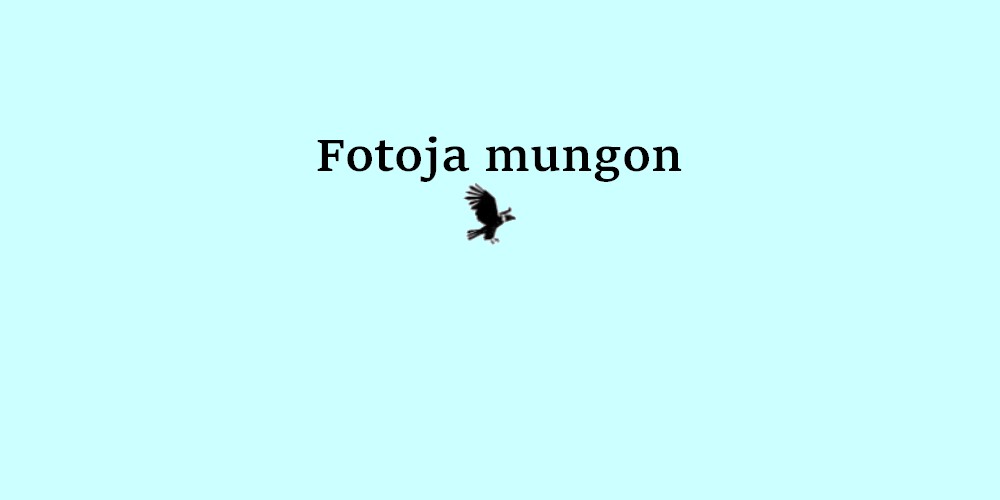Calling the Forbidden Fairy
Shqiptar Oseku
In an old Albanian tale, a shepherd goes astray in the Damned Mountains and finds suddenly the dance lodge of the fairies. The fairest of them falls in love with him, and helps him out. She asks the shepherd to keep their relationship a secret, so that they can meet by the lodge every moonless night. But the shepherd can only keep the secret for a while, and then tells his mocking villagers about it. When he goes to the next rendezvous, the fairy never shows up. The young shepherd finds out that the lodge has disappeared, and that, to his horror, he has forgotten the path back home. As the story goes, mountain winds still carry shepherds calls, crying out his fairy’s name.
It’s a common myth from the Balkans, passing over a message as ancient as it is still topical. That man has always recognized – and feared! – the danger of telling the truth. Yet, that man at times is compelled to tell the truth, despite dire consequences, in order to retain his self-respect.
Perhaps this is more obvious to small nations, who have had to fight to survive tidal waves of history. Who have had to linger under the tyranny of the mighty, and have had their stories, and indeed their entire existence, questioned.
No wonder, therefore, why that experience has obtained the sanctity of a myth among the Albanians, the persecuted natives of the Balkans. Indeed, there are no other nations in Europe (except, perhaps, of the Baltic under Stalin) who have had to pay a higher price for telling their story. No other nation has had so many of its rhapsodists killed for singing historic chants; so many intellectuals jailed for writing down forbidden ideas; so many students beaten and electroshocked for having red them; and so many parents house-searched because of, and interrogated on, their children’s readings.
The author of this particular book, Xhemil Zeqiri, is a Dane of Albanian origin, one of those hundreds of imprisoned Albanian students who fled former Yugoslavia in 1980’es. He was fortunate to get asylum in Denmark before it sharpened its refugee stance to today’s quick deportation policies. He is quite known to the Balkan connoisseurs in Denmark for his outspoken views, having published tens of articles in numerous Danish newspapers, and an intriguing book on the Albanian Question.
In his second book, we get to understand what has happened in Balkans after NATO intervention in 1999. In many ways, this is the tale of what followed after the official “happy ever after”.
Mr Zeqiri has a story to tell, and tells it frankly. Reminder of the shepherd, his is the story of a humanist who’s seen the humanity running down the gutter in Balkans (even) after the NATO intervention, and sounds the alarm. Mr Zeqiri has a plain truth to tell us: namely, that the disenfranchised and shattered Albanians are being neglected and abused once again, this time, though, not by local culprits, but by very democracies (including Denmark) who stepped forward vowing to change things.
Articles, transcripts of meetings, and letters of Zeqiri (among others, to the actual Danish foreign minister and his EU homonym) vary each-other to comprise an integrated and original book, which also reveals the painful conditions of an non-profit lobbyist dedicated to a hushed cause. Having lobbied myself for the Albanians in the neighbouring Sweden for years, I feel quite fitted to fully understand the desperation that oozes between the lines of Zeqiri’s book. International standards and conventions, even basic human decency, don’t seem to apply whenever the Albanian Question is discussed – no explanation needed nor given!
It is precisely this self-evident and unquestioned stance, this “I am I” of real-politics in the Balkans, that alarms Zeqiri. To all appearances, it seems that the Albanians have been judged, in a phantom trial, by an invisible judge, to be the “unworthy victim” of the old continent. It’s a grim sentence, which always and unmistakably has pointed out “the other” in a region: Jews in Germany, Chechens in Russia, Kurds in the Middle East, Tutsis in Africa, and unfortunately – even after the NATO intervention – the Albanians in the Balkans.
Zeqiri calls upon Denmark, as a member of EU and NATO, to take its responsibility and act within these organizations, to promote a new, humanist – and indeed rational! – perspective towards the Albanians. He calls upon EU and NATO to realize the plain fact, that one can’t build a lasting architecture of peace in the Balkans, without addressing the Albanian craving for freedom. For freedom is not something that can be portioned out cautiously, as in pills or from the dropping bottle, but an universal and absolute category: you either are free, or you’re not! How we address Albanian cry for freedom in the Balkans today, he warns, marks out values that our own children shall inherit in the future Europe.
Charming plains of Denmark don’t house any mountain winds. Still there is a cry out there, from Xhemil Zeqiri, calling a forbidden fairy’s name. Let’s hope that someone hears him, for the sake of all of us, before it’s too late!
09-04-2005


Shënim:
Redaksia, diplomacia. dk nuk e merr përgjegjësinë për pikëpamjet e autorit në shkrimin e botuar!
Respekt!
